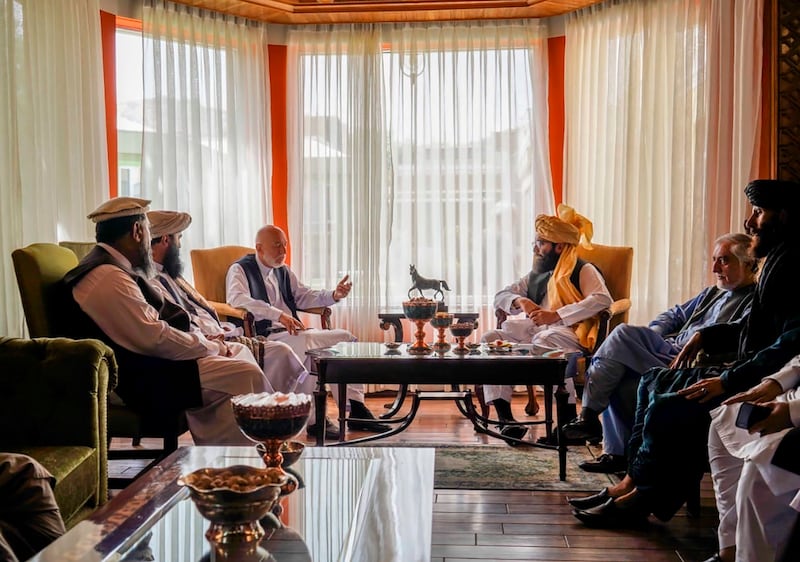As the United States withdraws from Afghanistan, under intense pressure, the Taliban are providing stark evidence of their exceptional fighting prowess. Forces of the militant fundamentalist movement have overrun major cities with stunning speed. The national government has collapsed.
This success has occurred despite the expenditure of many billions of dollars, and tremendous labor, over two decades to build an effective national army and representative central government institutions.
Senate Republican leader Mitch McConnell’s immediate denunciation of President Joe Biden for a “botched” Afghanistan withdrawal begins the inevitable political recriminations. There are also cries from some political quarters to send sizable military forces to overthrow the Taliban again.
That would be a major blunder.
As always, context is clarifying. On Sept. 11, 2001, an al-Qaeda (not Taliban) terrorist group based in Afghanistan carried out large-scale horrific, murderous attacks on the United States. Hijacked civilian aircraft became directed lethal missiles. High-octane aviation fuel provided massive explosions on impact, an imaginative as well as evil killing tool.
Planes struck the World Trade Center in New York City and the Pentagon in Washington D.C. Another went down in the Pennsylvania countryside. That plane likely was to hit the U.S. Capitol or White House. Passenger heroes prevented that.
In response, military forces of a comprehensive international coalition of nations led by the U.S. overthrew the fundamentalist Taliban regime in Kabul. Both the United Nations and NATO supported this effort, made necessary by the terror attacks.
Over time, comprehensive economic, political and social reform dimensions evolved. These were not necessary.
In February 2020, after nearly 20 years of occupation, the U.S. government and the fundamentalist Taliban movement signed a formal agreement for the phased withdrawal of international troops. The accord includes detailed stipulations to help protect the population and discourage the return of terrorists.
This struggle to find a reasonably responsible, acceptable diplomatic route for departure reflects subtle but sustained sentiment among Americans. This was important to Donald Trump’s 2016 election victory.
Afghanistan has no history of sustained central government. Local tribal leaders remain powerful, dominant politically and socially, lethal in armed conflict.
In 1979, the Soviet Union carried out a massive invasion and occupation of Afghanistan. Many years of brutal unconventional warfare followed, extraordinarily costly to Soviet forces.
President Jimmy Carter supplied American weapons and related support for the Mujahideen warriors. President Ronald Reagan expanded that aid. A decade later, Moscow withdrew, acknowledging defeat.
After the 9/11 attacks, a sizable international coalition led by the U.S., under UN authority, invaded Afghanistan and overthrew the Taliban regime. However, the movement was not defeated.
Instead, in classic insurgent fashion, the Taliban faded into the population. Professor John Mearsheimer of the University of Chicago has provided insightful analysis.
Afghanistan is significant for U.S. interests within the larger South Asia region. Major trade routes traverse the region, today as in ancient times. Preventing proximate powers, notably China, from establishing dominance is important.
As the Taliban advances, the U.S. must conduct efforts to extricate those who wish to leave, especially people who directly supported the international coalition. Mearsheimer and others emphasize the importance of remaining involved by means of espionage, bribery and other forms of influence, including special operations.
The surprise of American officials as Afghanistan collapses signals major intelligence failure. That requires investigation.
Finally, the Afghan people ultimately are responsible for their nation.
Learn More: John J. Mearsheimer, “The Great Delusion – Liberal Dreams and International Realities”
Arthur I. Cyr, director of the Clausen Center at Carthage College, is author of “After the Cold War,” “Liberal Politics in Britain” and other books. Contact acyr@carthage.edu.


